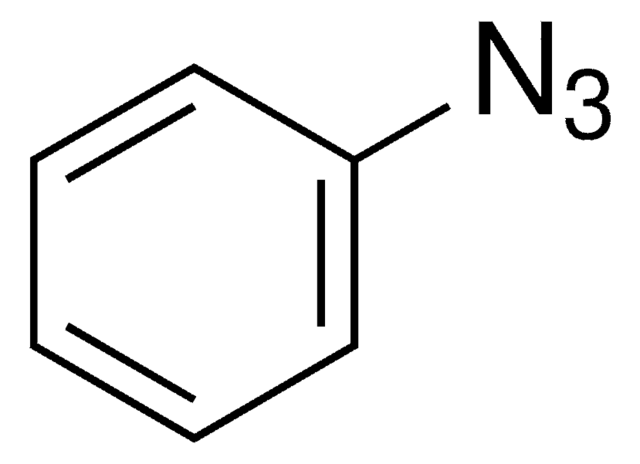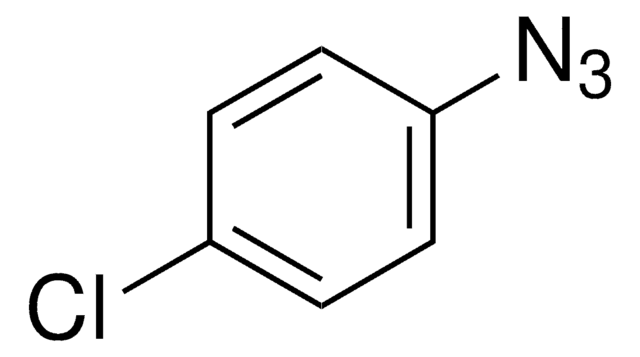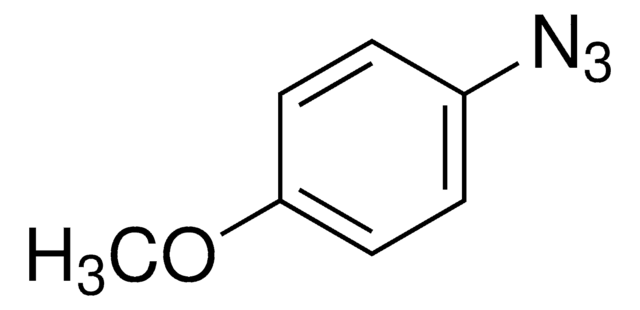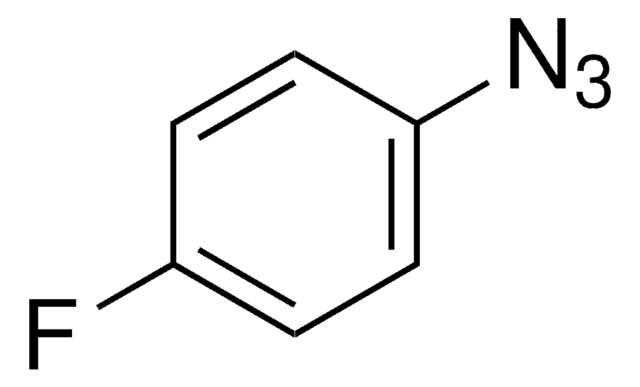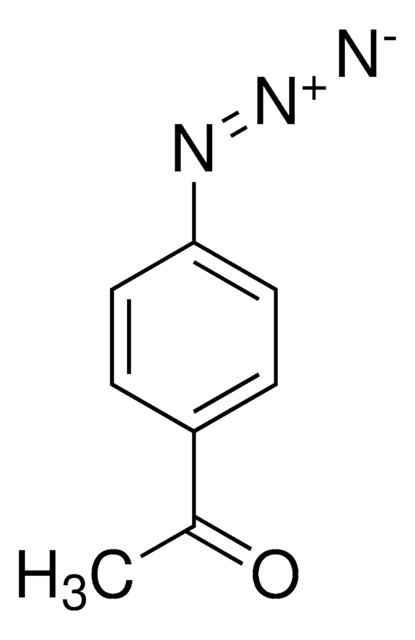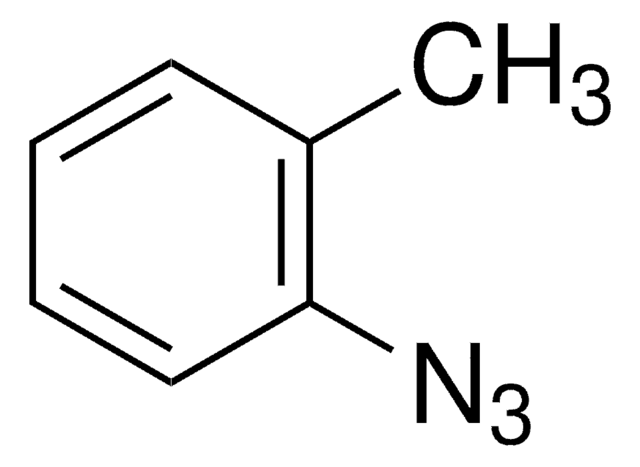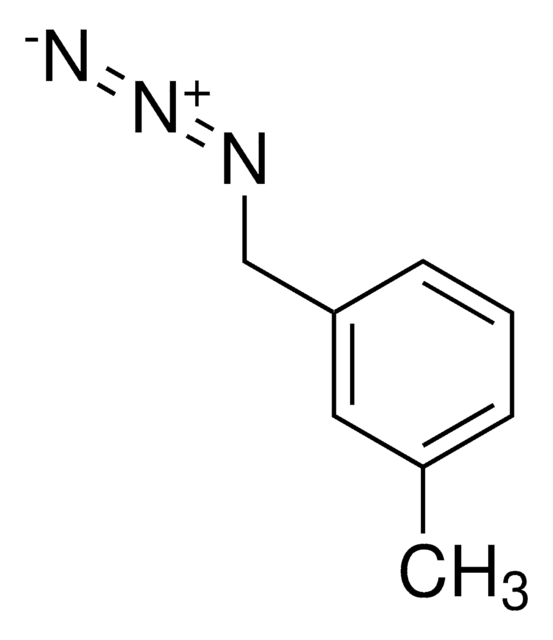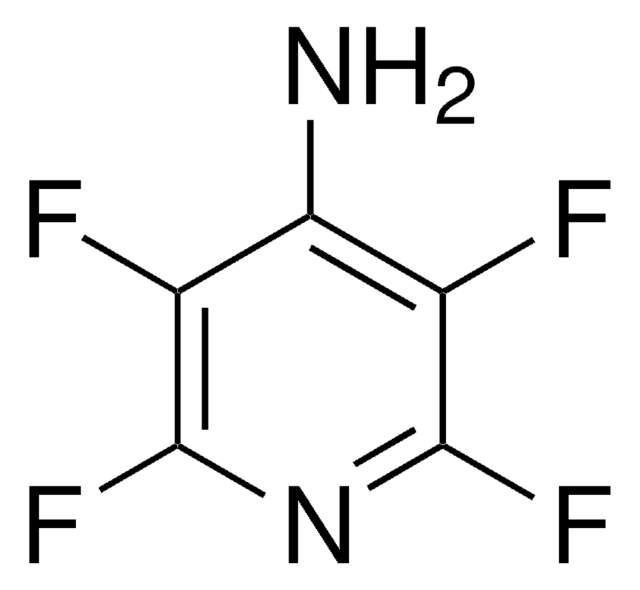778583
Azidobenzene solution
~0.5 M in 2-methyltetrahydrofuran, ≥95.0% (HPLC)
Synonym(s):
Phenyl azide solution
About This Item
Recommended Products
Assay
≥95.0% (HPLC)
form
liquid
greener alternative product characteristics
Catalysis
Learn more about the Principles of Green Chemistry.
sustainability
Greener Alternative Product
concentration
~0.5 M in 2-methyltetrahydrofuran
impurities
≤2.0% water
greener alternative category
storage temp.
−20°C
SMILES string
[N-]=[N+]=Nc1ccccc1
InChI
1S/C6H5N3/c7-9-8-6-4-2-1-3-5-6/h1-5H
InChI key
CTRLRINCMYICJO-UHFFFAOYSA-N
Looking for similar products? Visit Product Comparison Guide
General description
Application
2-Methyltetrahydrofuran (2-MeTHF): A Biomass-Derived Solvent with Broad Application in Organic Chemistry
Signal Word
Danger
Hazard Statements
Precautionary Statements
Hazard Classifications
Acute Tox. 4 Oral - Eye Dam. 1 - Flam. Liq. 2 - Skin Irrit. 2 - STOT RE 2
Supplementary Hazards
Storage Class Code
3 - Flammable liquids
WGK
WGK 3
Flash Point(F)
10.4 °F
Flash Point(C)
-12 °C
Certificates of Analysis (COA)
Search for Certificates of Analysis (COA) by entering the products Lot/Batch Number. Lot and Batch Numbers can be found on a product’s label following the words ‘Lot’ or ‘Batch’.
Already Own This Product?
Find documentation for the products that you have recently purchased in the Document Library.
Customers Also Viewed
Our team of scientists has experience in all areas of research including Life Science, Material Science, Chemical Synthesis, Chromatography, Analytical and many others.
Contact Technical Service